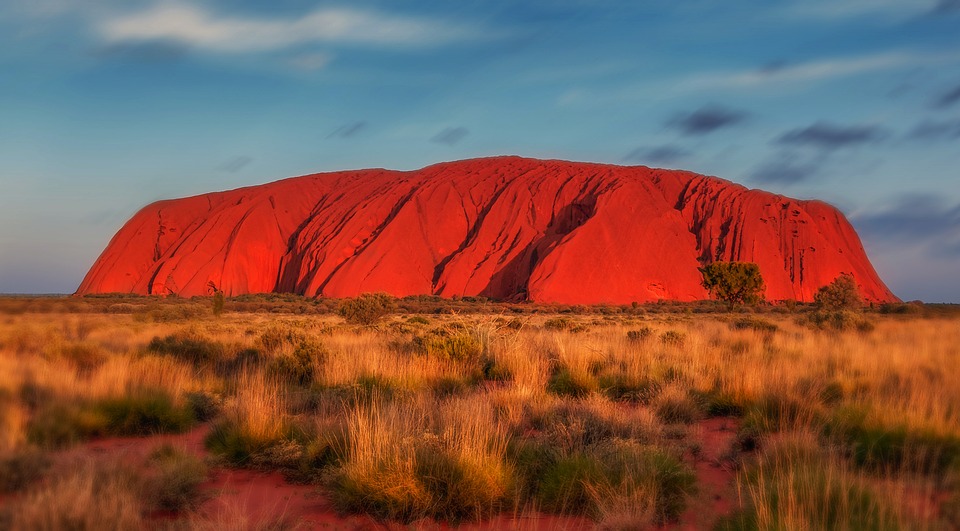
Adelaide (TAN): A sacred site for Central Australia’s indigenous Anangu community, the Uluru rock has been witnessing a flood of tourists climbing it months before the practice is banned, reports said.
Climbing to the top of the 348 metres tall red monolith will be off limits from October 26, after the management board of the Uluru-Kata Tjuta National Park voted in November 2017 to stop visitors from scaling the rock.
But it has only made matters worse for the UNESCO World Heritage national park. In a bid to set foot on the rock before the ban, tourists are scrambling to the site from all over, creating a human congestion that could be damaging for Uluru. Visitors are reportedly not just illegally camping in the area, but are also leaving trash and septic waste on their way up.
[ALSO READ: JetBlue installs free book vending machines across all New York City boroughs]
“We have got so much of one particular market coming, we don’t have enough infrastructure to handle the number of drive travellers. While most visitors are doing the right thing, camping venues in the area are at capacity with advance bookings, leaving many less organised arrivals to set up illegally,” Chief Executive of Tourism Central Australia Stephen Schwer was quoted by media reports as saying.
He added: “People don’t realise when they go off the road they are actually trespassing on pastoral land, or Aboriginal land, or protected land. We are getting people that are leaving their rubbish behind and lighting fires. Sadly, people are also emptying their toilet waste out of their vans on what they think is unpopulated land, but is actually private land.”
Europeans exploring Australia’s Northern Territory spotted the rock in the early 1870s, which was subsequently named Ayers Rock. But Uluru has been traditionally owned by the Aboriginal Anangu, although the community was not officially acknowledged as the traditional owners and given back the title deeds until 1985, after decades of struggle for recognition.
The Anangu, that leases the land to the Australian Government, have requested tourists to not climb Uluru as a mark of respect since it is sacred to their culture. They installed a sign in several languages near the base of the formation in a bid to ward off climbers.
[ALSO READ: Western Australia promotes itself as Muslim-friendly tourist destination]
It reads: “We, the traditional Anangu owners have this to say. The climb is not prohibited, but we ask you to respect our law and culture by not climbing Uluru. We have a responsibility to teach and safeguard visitors to our land. The climb can be dangerous. Too many people have died while attempting to climb Uluru.”
The community lobbied the government in 2017, following which the ban was announced.




